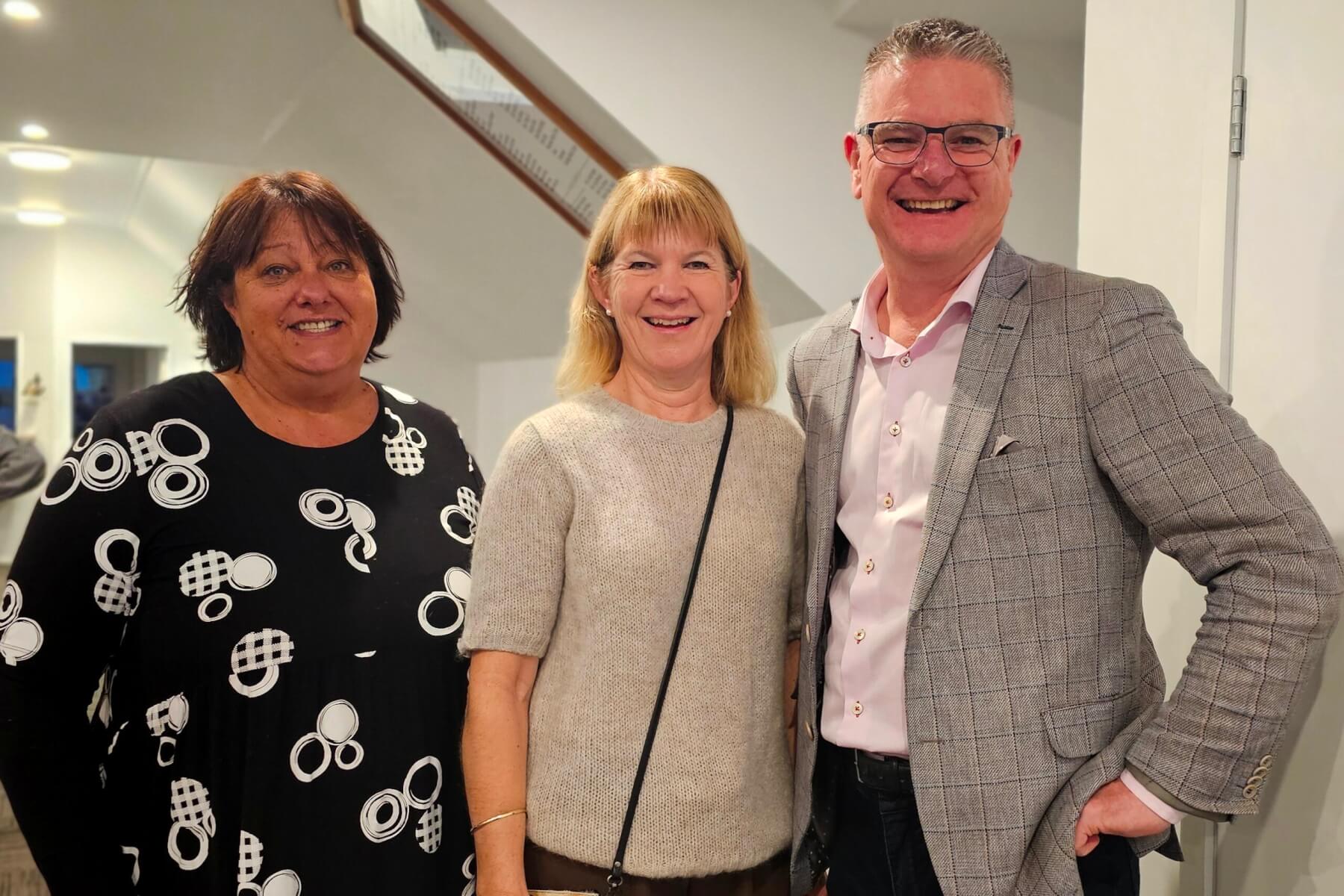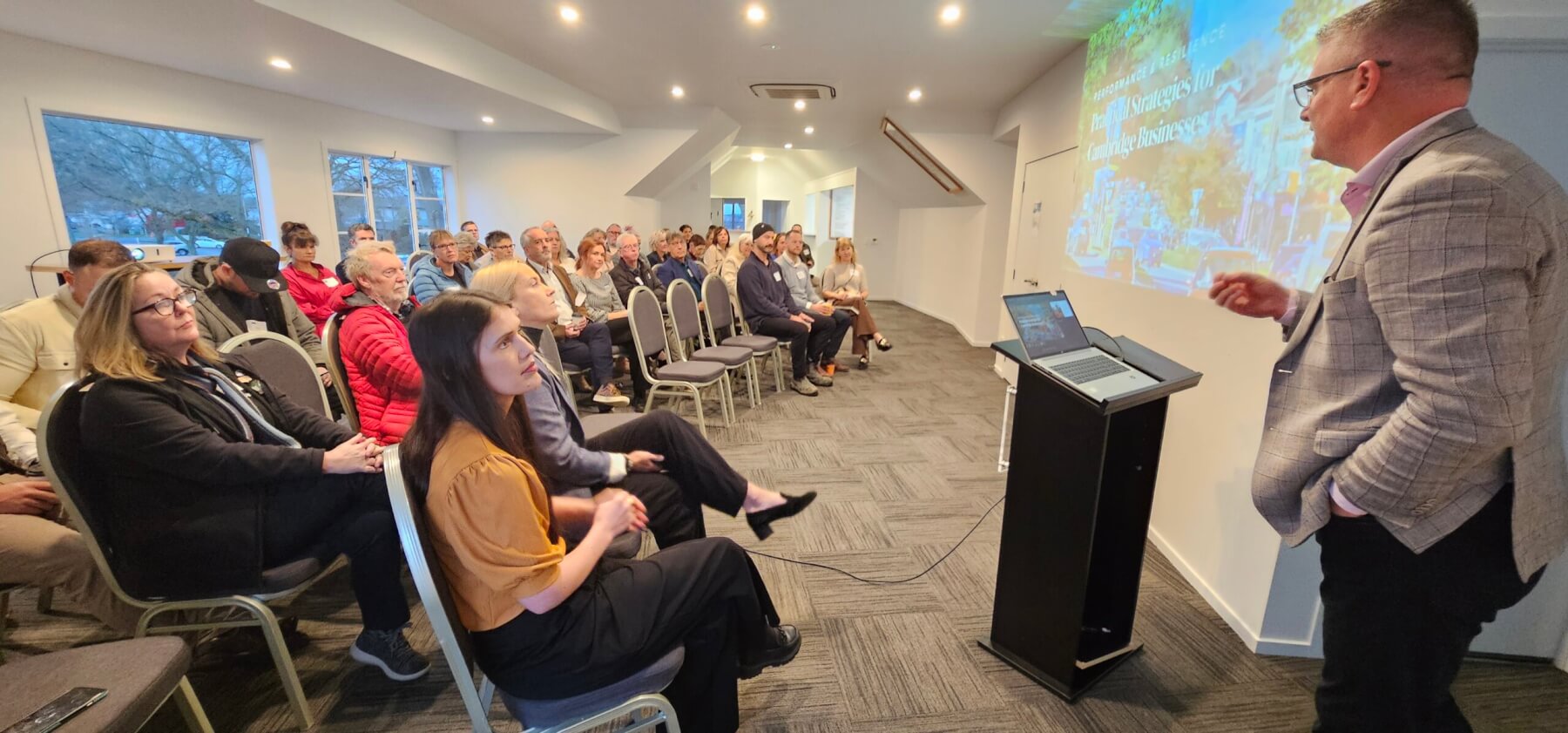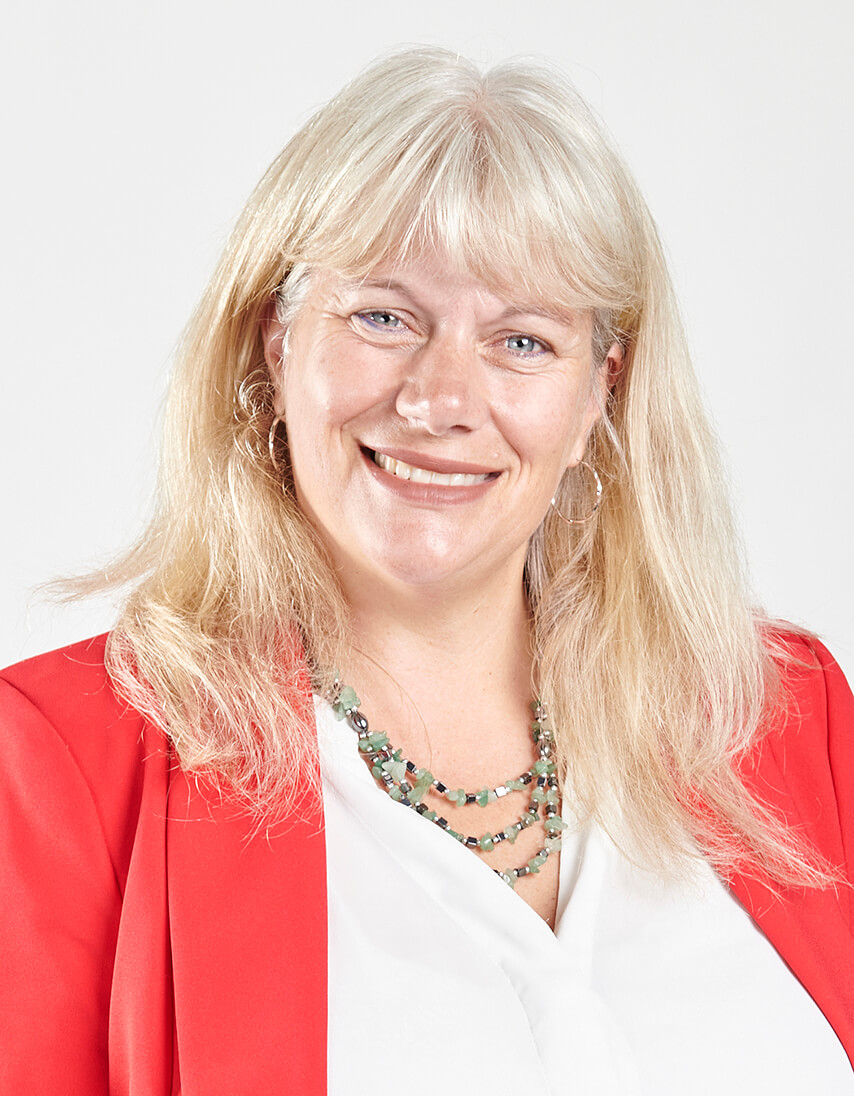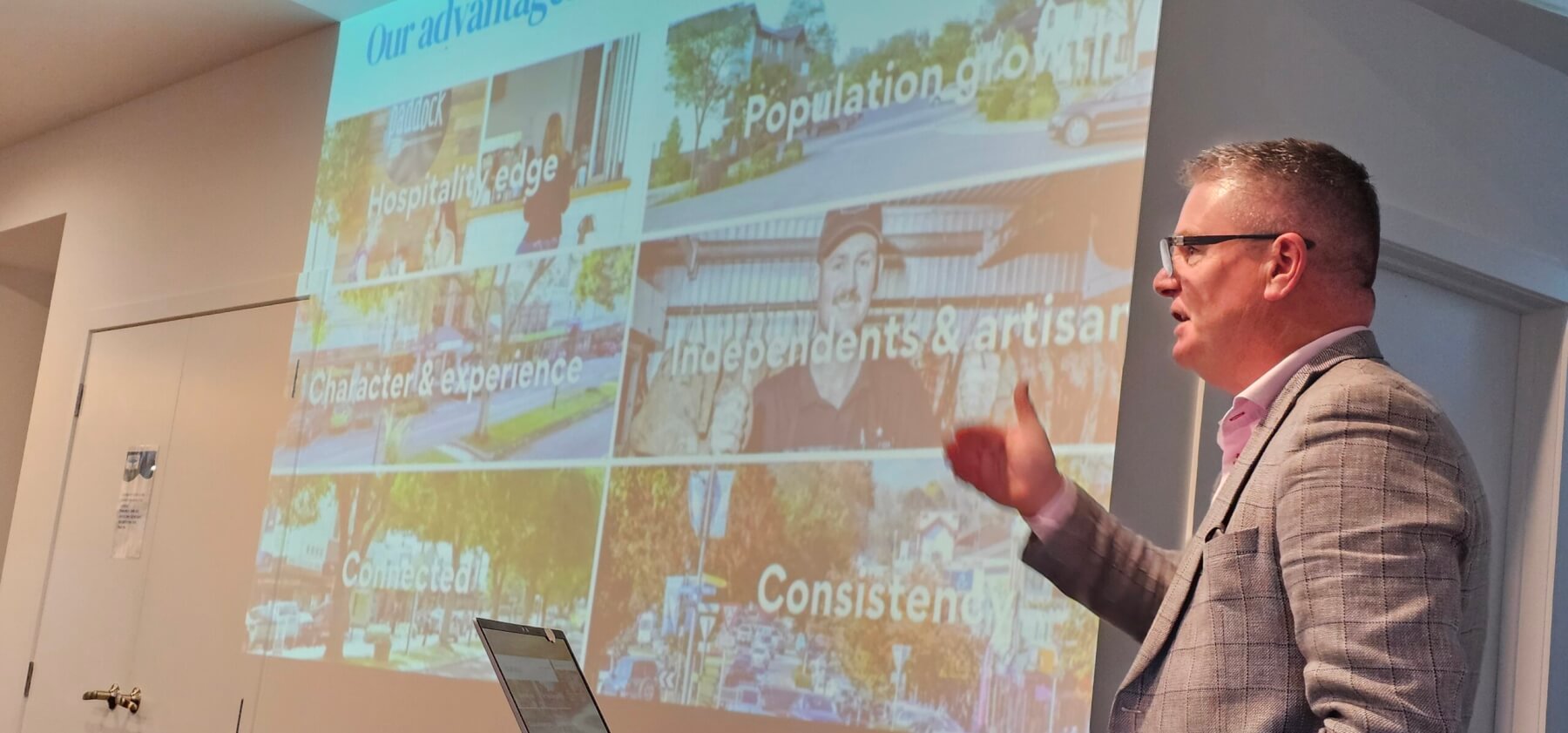An internationally acclaimed retail expert says small town retailers should be open, welcoming and convenient in response to testing economic conditions.
First Retail Group managing director Chris Wilkinson is a specialist in unlocking potential in towns like Cambridge, Te Awamutu, Ōtorohanga and Te Kūiti.

Be your own champions, from left Cambridge Chamber CEO Kelly Bouzaid, retail representative Debbie Simes and First Retail Group managing director Chris Wilkinson. Photo: Mary Anne Gill.
His solutions have worked around New Zealand – including Nelson, Queenstown, Invercargill, Kaitaia and Auckland suburbs – Australia and the United Kingdom.
Speaking at a Chamber of Commerce function this week in Cambridge, Wilkinson said towns needed to look vibrant and bustling in the face of economic challenges.
“A town centre is a very important part of the socio-economic environment,” he told The News before the meeting.
He gave the example of how he arrived in Cambridge at 6am and was greeted warmly and enthusiastically by a local café.
“I can’t tell you just how important that sort of thing is,” he said.
Working together and championing your own communities was a crucial step.
Be positive with shoppers, he said.
“No-one’s out shopping for negative vibes.”

First Retail Group managing director Chris Wilkinson talks about championing your own town to increase retail sales. Photo: Mary Anne Gill.
Earning the visit and sale had never been more important so “inspire and enthuse.”
The Chamber of Commerce brought Wilkinson to Cambridge to speak to retailers about navigating the ever-changing retail landscape. Among those present were Te Awamutu Chamber chief executive Shane Walsh, mayor Susan O’Regan, deputy mayor Liz Stolwyk and Cambridge Community Board chair Jo Davies-Colley.

Jo Davies-Colley
“Everyone is in the same situation across the country,” he said.
Customers were spending less, the cost of doing business had gone up and there was uncertainty in the economy.
But communities had the answers. Retailers could look at individual initiatives and develop their own niche.
“Something you can own and dominate in.”
Converting the visitors who attended events in communities was “domestic tourism” at its best, said Stolwyk, who manages Mighty River Domain at Lake Karāpiro.

Liz Stolwyk
There were 100,000 people through the domain annually and with other events at places like Mystery Creek, attracting them into towns had to become a priority.
Others would happily take your audience and goodwill, said Wilkinson who encouraged retailers to reset the narrative and work collectively.
Local businesses were competitive, unique and filled with choice and experiences.
Get customers to be your advocates by dominating in digital visibility, he said.
“People are looking for good news stories so tell them.”

First Retail Group managing director Chris Wilkinson talks about championing your own town to increase retail sales. Photo: Mary Anne Gill.









